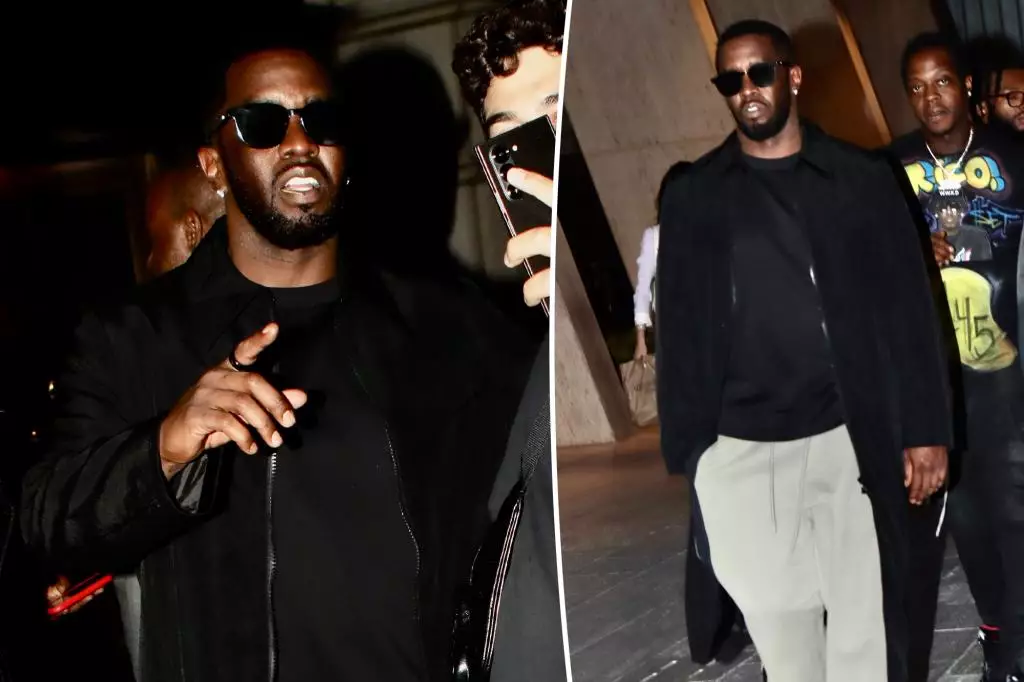The world of hip-hop and celebrity culture is no stranger to controversies, but the recent legal troubles surrounding Sean “Diddy” Combs have brought forth a particularly complicated and troubling narrative. The arrest of Diddy, a figure celebrated for his contributions to music and entrepreneurship, shines a harsh light on the darker undercurrents of fame and power dynamics within relationships. This article will explore the implications of his allegations, the behavior of the parties involved, and the pressing need for societal accountability.
Sean Combs was arrested recently under circumstances that remain ambiguous. Though the specifics of the charges against him have yet to be disclosed, his cooperation with law enforcement suggests an attempt to navigate the murky waters of these serious allegations. As stated by his attorney, Marc Agnifilo, Combs voluntarily traveled to New York in expectation of facing these charges, hinting at an intent to address his situation transparently. This move, while commendable, also raises questions: why would a figure like Combs—who has built an empire over three decades—find himself needing to confront the law in such a manner?
The legal landscape surrounding Diddy is not short on complexity. The assertion from Agnifilo that Combs is “an imperfect person but not a criminal” introduces a perplexing juxtaposition. It emphasizes both the humanity and the flaws inherent in every individual, but simultaneously underscores the gravity of the situation. The narrative that emerges from his attorney’s defense suggests that public figures must tread a perilous line between their personal lives and public personas, a recurring theme in celebrity culture.
The allegations against Combs catalyzed with a lawsuit from his former girlfriend, Casandra “Cassie” Ventura, who claimed she endured rape and physical abuse during their decade-long relationship. This explosive charge initiated a series of reactions and additional allegations from other women, painting a picture of a deeply troubling pattern of behavior.
Compounding the gravity of Cassie’s accusations is the unsettling reality that more individuals have come forward with similar claims. The allegations span decades, with instances as far back as the early 1990s being brought into the spotlight. When such an influx of complaints arises, it does not merely resonate with one case but rather contributes to a larger discussion about systemic issues of abuse, power imbalances, and the challenges victims face in seeking justice.
The emergence of graphic evidence, including a video of Combs abusing Ventura in a hotel room, complicates the narrative even further. In an ensuing public disclosure, he acknowledged his actions and sought professional help, acknowledging the need for personal reform. This admission raises questions about awareness of one’s actions—specifically, how someone can inhabit both the role of a celebrated artist and an accused perpetrator simultaneously. It illustrates the complexity of the human experience, where personal demons can coexist with professional triumphs.
Diddy’s situation serves as a microcosm of relevant societal issues, highlighting how fame and wealth may shield individuals from accountability. It raises vital questions regarding privilege, both in legal contexts and within broader societal frameworks. When affluent individuals face serious allegations, the intersection of celebrity culture, social media, and public discourse plays an outsized role in shaping narratives.
The response from Diddy’s camp—urging the public to reserve judgment until all facts are known—also points to a broader dialogue around due process and public sentiment. In today’s climate, the rush to judgment often breeds division and complicates conversations about justice and healing for victims of abuse.
Ultimately, the legal troubles surrounding Sean Combs underscore a critical need for accountability—not just for those accused but also for the systems that enable such behavior to persist unchallenged. While the courts will determine the severity of Combs’ alleged actions, the impact on cultural perceptions regarding celebrity and abuse can be staggering.
As society grapples with its response to accusations of this nature, meaningful conversations about consent, power dynamics, and ethics must continue. The case of Sean “Diddy” Combs serves as a crucial reminder of the complexities at play when fame collides with the unyielding need for justice. The road ahead calls for both introspection and collective action; as we await the outcomes of ongoing investigations, we can only hope for truth and healing for all involved.


Leave a Reply